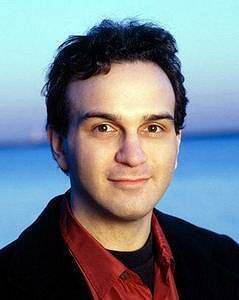S & H Concert Review
Gil Shaham in London IV: Beethoven, Debussy, Stravinsky; Gil Shaham (violin), Philharmonia Orchestra; Hugh Wolf (conductor); RFH, 13th March 2004 (AR)
The most memorable feature of this concert was the sublime playing of violinist Gil Shaham, who substituted for an indisposed Kyung Wha Chung. This unexpected appearance brought his recent series of London concerts to a fortuitous but none the less welcome climax.A pedestrian performance of Beethoven’s Overture, Leonore No. 1 prefaced Shaham’s intuitive interpretation of Beethoven’s Violin Concerto; mesmerising from beginning to end, it left the audience transfixed both by the sheer intensity of his gleaming playing and his alluring stage persona. The Allegro ma non troppo fluctuated between a subtle radiance and a rugged, toughness; the soloist played from his entire being with tremendous physicality, often lunging towards the conductor with big strides.
In the Larghetto, Shaham switched to a plangent sweetness of tone, producing notes so tranquil and ethereal that they seemed to hover fractionally before drifting and dwindling into the furthest reaches of the spellbound hall. In the concluding Rondo Shaham brought out a multiplicity of moods making the notes sound like a conversation between a constellation of violinists: here one could hear not just one voice but many. Again he used his whole body to bring forth the most extraordinary sounds, the like of which I have never heard before in this work. Shaham’s genius is to make us listen to a score as if it were newly minted, stripped of timeworn clichés.
Throughout the conductor took his cues from his soloist and conducted with a crisp directness; indeed, this was by far the best conducting of the evening and I suspect it was his soloist that kept Wolf so attentive.
The second half opened with a flat-footed performance of Debussy’s Prelude á l'après-midi d'un faune. While the playing was highly polished the music lacked sensual glow; Wolf failed to register the sheer eroticism of this work.
If Stravinsky’s Rite of Spring was conducted with gusto Wolf rarely conjured up a sense of savagery. The Philharmonia played with their customary slickness but the performance was largely untheatrical. In Harbingers of Spring: Dances of the Adolescents, the strings were under-projected; in stark contrast, the brass, timpani and bass drum had a brutal bite in Mock Abduction and Games of the Rival Tribes. The pacing of Adoration of the Earth and Dance of the Earth were too ponderous, negating any sense of forward-thrusting manic movement.
Part Two: The Sacrifice faired much better with a perfectly paced Introduction (Largo); here the Philharmonia produced suitably subdued eerie sounds, while in The Summoning of the Ancestors, the timpani playing was intense and incisive. The drama only really unfolded with The Sacrificial Dance of the Chosen One where Wolf’s tempi brutally drove home the relentless pulse of the music; the closing passages were the most exciting of an otherwise rather tame performance.
Judging by the Philharmonia’s demeanour straight after the concert I sensed there was little rapport between orchestra and conductor. I strongly recommend Karel Ancerl’s recording of the Rite of Spring with the Czech Philharmonic Orchestra (coupled with his equally outstanding account of Prokofiev’s Alexander Nevsky: Supraphon: 11 1948-2 911).
Alex Russell

 Return to:
Return to: